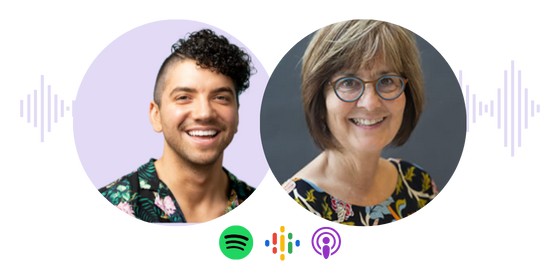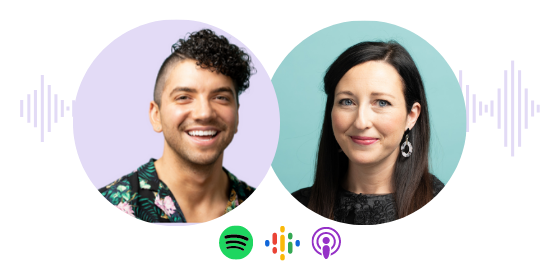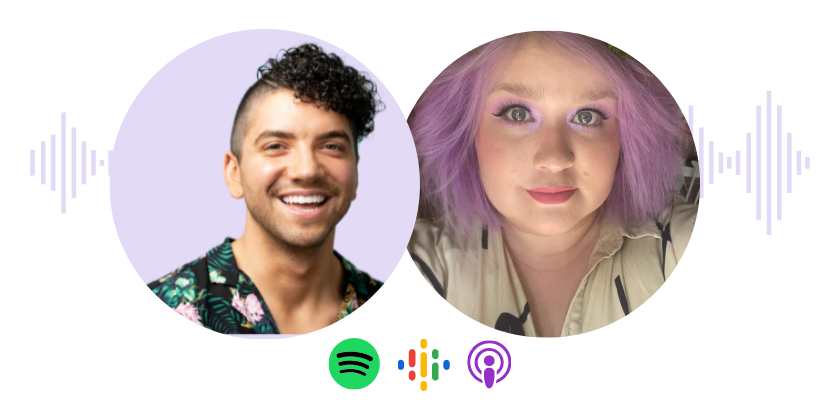Be Patient with Yourself - with Aisha Cosby, Principal for New York City Department of Education
'That's Child's Play' is back, and we're live at the NAEYC conference in Washington, DC! This episode, we're joined by Aisha Cosby, principal in the New York City Department of Education. We talk about how she incorporates play and self care into her school districts.
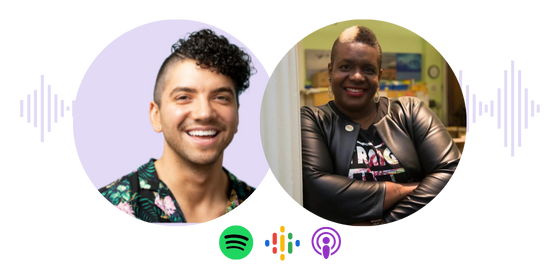
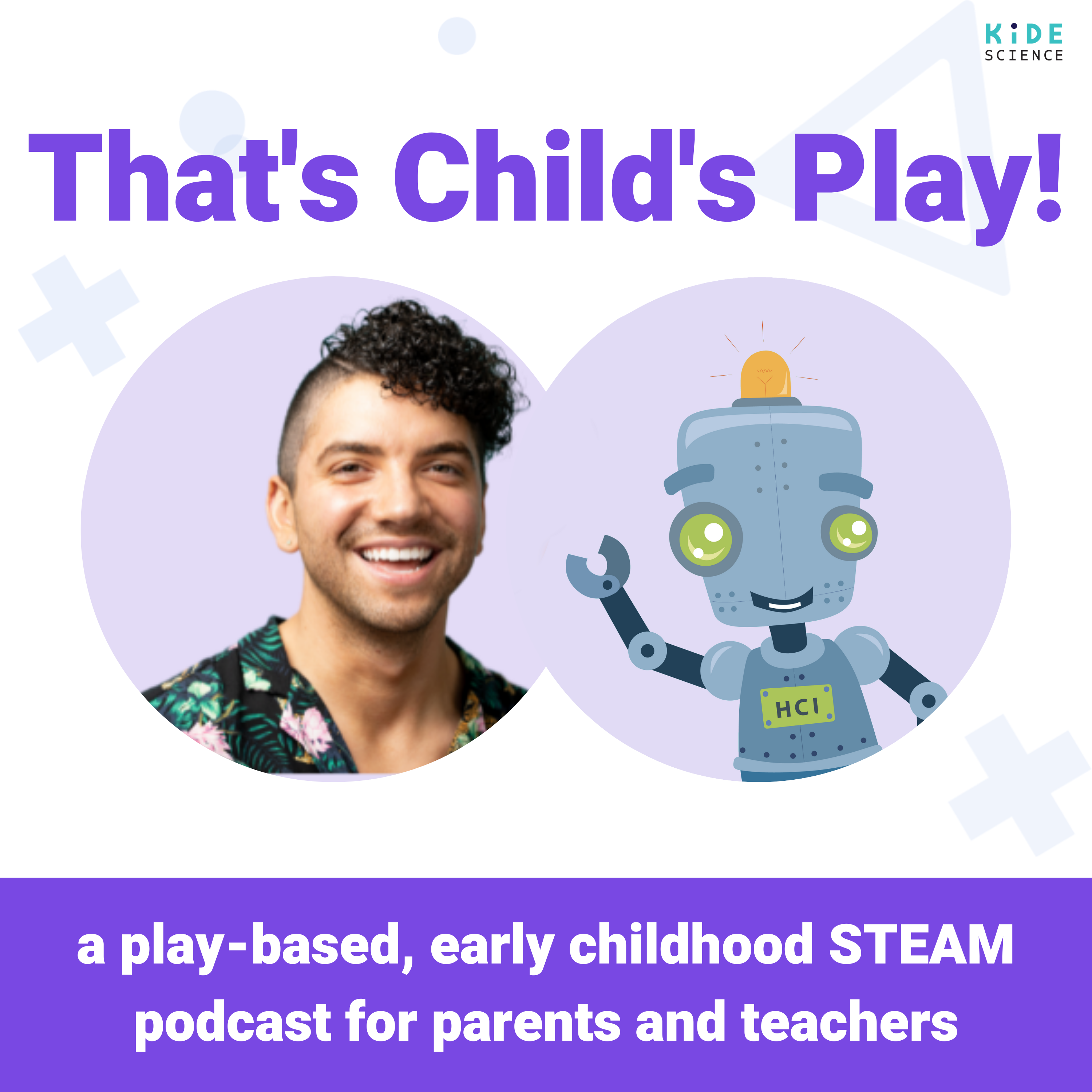
That's Child's Play!
This post was published to accompany an episode of Kide Science’s podcast, “That’s Child’s Play!” To hear more, listen to the podcast directly on this page or wherever you listen to your podcasts.
The Transcript can be found below
Generated by AI, so please be gentle!
[00:00:00] Antonio: A couple weeks ago, the team at Kide Science went across the pond from Helsinki, Finland, all the way to Washington DC for the NACY or national association for the education of young Children's annual will conference. We had a booth where we showed teachers the joys of playful learning and got to talk to teachers around the world about how we can improve early childhood education for everyone.
Hi, my name is Antonio Santiago. welcome back to that's. Child's play the play-based early childhood steam podcast for parents and teachers. It's been a minute, but we're back with a bang. Our first episode since coming back is with Aisha Cosby. One of the principals for district two, three K and pre-K centers in Manhattan, New York. In this episode, we talk about movement and learning, learning through play, and how we can make early childhood education more inclusive and equitable for all.
So without further ado. Let's get into it.
If I had to describe. Aisha in three words, they would be fun. Fun, fun. When she walks into a room it's electric and you can tell her little ones must feel the same way. Aisha welcome to the show. Can you tell me a little bit about what you do?
I am one of the principals of the district, two three K pre-K centers in Manhattan, New York,
Aisha
[00:01:30] Antonio: has actually chosento provide Kide Science's platform too all of the teachers she oversees, which was very, very exciting to us here at Kide Science. Aisha explains a little bit about how she came to this decision.
We were referred to her.
By a former parent whose child was in our program, and they moved to finland so when they went to Finland, I guess they connected with Saudi and then they connected Saudi to us. And I think of course parents are our partners and in that way is how we came to kids Science. actually through a former parent.
[00:02:06] Antonio: It's so good to see you at this conference where it's all about the children and early childhood education. How are you finding it so far?
Oh, NAEYC is exciting. This year I'm here as a participant. I'm normally here as a presenter, I'm learning, always learning. And so I'm learning so much at the conference this year.
[00:02:24] Antonio: Oh, what do you usually present on.
So normally I present on music and movement. Some of the topics are equity and diversity and literacy. So one of the topics that I'll be presenting in at NAEYC in Virginia is how to explore diversity through music and movement. And we talk a lot about the different instruments from different countries and how we bring that into our classroom how we use them in our movement. So that's one of the things that I'll be presenting in March.
[00:02:54] Antonio: Besides teaching about diversity, history and culture through movement. Aisha is passionate about social, emotional learning. And you may be surprised to know that her district is doing it through a bit of an unconventional way. Through steam. Science technology, engineering, arts, and math.
Our STEAM teachers have been doing a lot of that. And the experiments have definitely led to a lot of social emotional work with our students. We are gonna be talking about how you create a social and emotional learning community for both staff, students, and our parents. After the pandemic. We noticed that our school community needed a lot of had a lot of social emotional needs.
And we wanted to be able to support our school community through those needs. Coming back was challenging, which is why we really did concentrate on that social emotional learning. But I think now everybody's a little bit back into the swing of things.
They love being in person. I love being in person.
[00:03:52] Antonio: Right. And children need that. They need to be in person at such a crucial age where they're developing their social interactive skills.
And I think that kids science brings that piece too, if you see our children together in these Science center and the math center exploring together collaboratively.
[00:04:12] Antonio: Oh, so you've seen a Kide c lass in action, like a Kide lesson in action. What was that like for you?
I love it. The kids love it more, I think having this resource for our teachers was really valuable. . I actually had our deputy superintendent visit a couple of weeks ago to one of our sites and one of the teachers talked about Kide Science to the deputy superintendent and the experiments that the kids were doing and how their faces lit up during the experiment.
Some of the things that they were learning, it was really great that she brought that up and was able to share it with our deputy superintendent at that time. So I think having this as a resource for our teachers, especially our STEAM committee, was very valuable.
[00:04:57] Antonio: Right today. One of my colleagues just did a demo lesson for a school here in DC. And even though she's been with us for a while and has seen our lessons in action before she said she almost started crying because of the way one of the children engaged. And specifically there was this one child whose been a bit difficult for the teachers and administrators, but he was all in when doing things the playful way.
And that's that social emotional piece we're talking about. You know, Children who wouldn't regularly engage, in collaborative activities. Have a means to, an entry point to that type of collaboration. And one of the things that I notice when the teachers are doing the Kide Science experiments in the classes, is this making the kids thinking visual. , right? It's bringing their thinking alive.
[00:05:49] Antonio: Right. It's getting on their level on the level of a child. They have these vast wonderful imaginations. And the whole goal is to work with these wacky and sometimes wild, brilliant minds they have. Now Aisha, I have a few hard hitting questions for you. The first one is, what do you wish the us would do to solve what is wrong with early childhood education?
We have to first start with valuing early childhood educators, right? If we value their service. We want to make sure that there's equity in pay. Early childhood educators work very hard, tirelessly long hours. Take it home. And so we have to start valuing the work that they do, the same way we value the people in the sports industry.
And I'm not taking away from what they do. They put in a lot of time and effort and practice and training. So do early childhood educators. They put in a lot of time, effort, work and training. And so we definitely need to begin to. Value them in that way. We have to revisit how we compensate our early childhood educators.
[00:06:59] Antonio: Yeah, we always talk the big talk about how much we love and appreciate teachers, but all of that talk doesn't pay the bills or make things easier on them financially.
Exactly. And they have families. They go above and beyond for other people's. They also have families. We also have families. So I think that would be one of my major advocacies.
[00:07:23] Antonio: What is a wish you have for the children in your community?
I just wish for them to be successful. So in my community, our children are only with us for one year. , right? Cause we're only three K pre-K and then they go to kindergarten and first grade somewhere else.
And so my wish is that what we are doing with them in that one year, two years, A three year old is going to sustain their success right. To the next level. We don't know who their next teacher is. We don't know. Sometimes we do what school they're going to, what kindergarten practices.
But my wish is that what we are doing in our three K pre-K centers and our school community is going to sustain their. It's going to impact where no matter where they go, no matter who's their teacher, they're going to be able to pull from the different things that we have imparted in their early childhood years.
That they need to be successful throughout their school. Of course college and career ready, but what we do to wish that their foundational years are impactful. , really, that's my wish.
[00:08:34] Antonio: I love that. Like, Instilling lifelong process skills. Okay. And one final question for you. Aisha before we go, because I know there's lots of places to be what do you wish you knew before you came into education? What is that piece of advice you would give to everybody coming into this field?
That self care is important, right?
Because like I just said, we take care of a lot of other people's children. . And we have both professional and personal obligations. But pour into yourself first so that you can actually be there for everyone else. Cuz I remember in my earlier years as a educator, I was running myself raggedy long days at work, early up, early in the mornings in my classroom, first person in the classroom.
So we have to remember that also to take time for ourselves as. Even in your early years as a teacher, I know that you think things won't get done unless you do it right then and there they'll get done.
[00:09:40] Antonio: Yeah. So like the concept that you can't pour from an empty cup
And if someone would have told me that earlier, I think one, I would've poured more into myself and my own family.
I was always like, oh, I can't go to my child's something at school because I have this at my school. the school will be okay they'll be okay. They'll find someone.
[00:10:00] Antonio: Aisha, thank you so much for your time. And thank you, dear listeners for tuning into that's. Child's play.
The play-based early childhood steam podcasts for parents and teachers. We'll be back with more episodes from our exciting trek to the United States. Stay tuned for more. And please make sure to rate like, and follow this podcast. Follow us on social media everywhere at Kide Science and shoot us a DM. If there's anything you'd like to hear more about.
Enjoy the rest of your day. Y'all.
